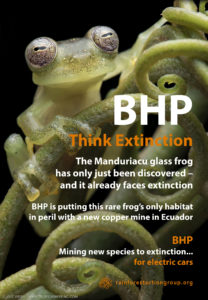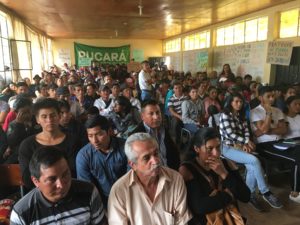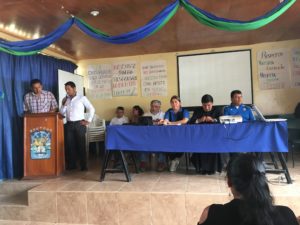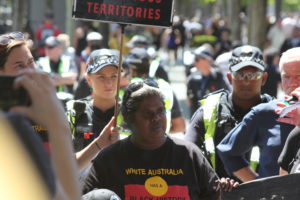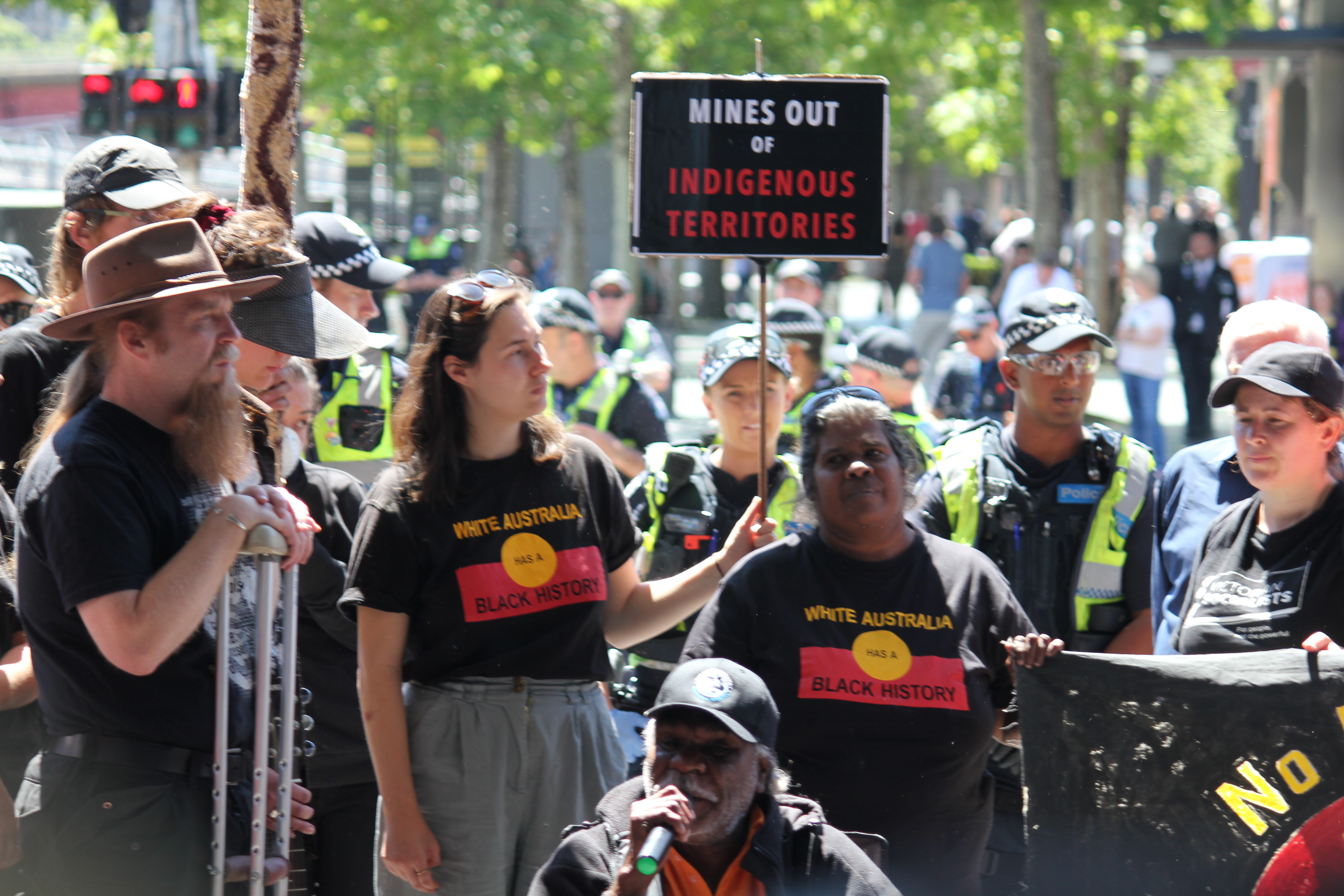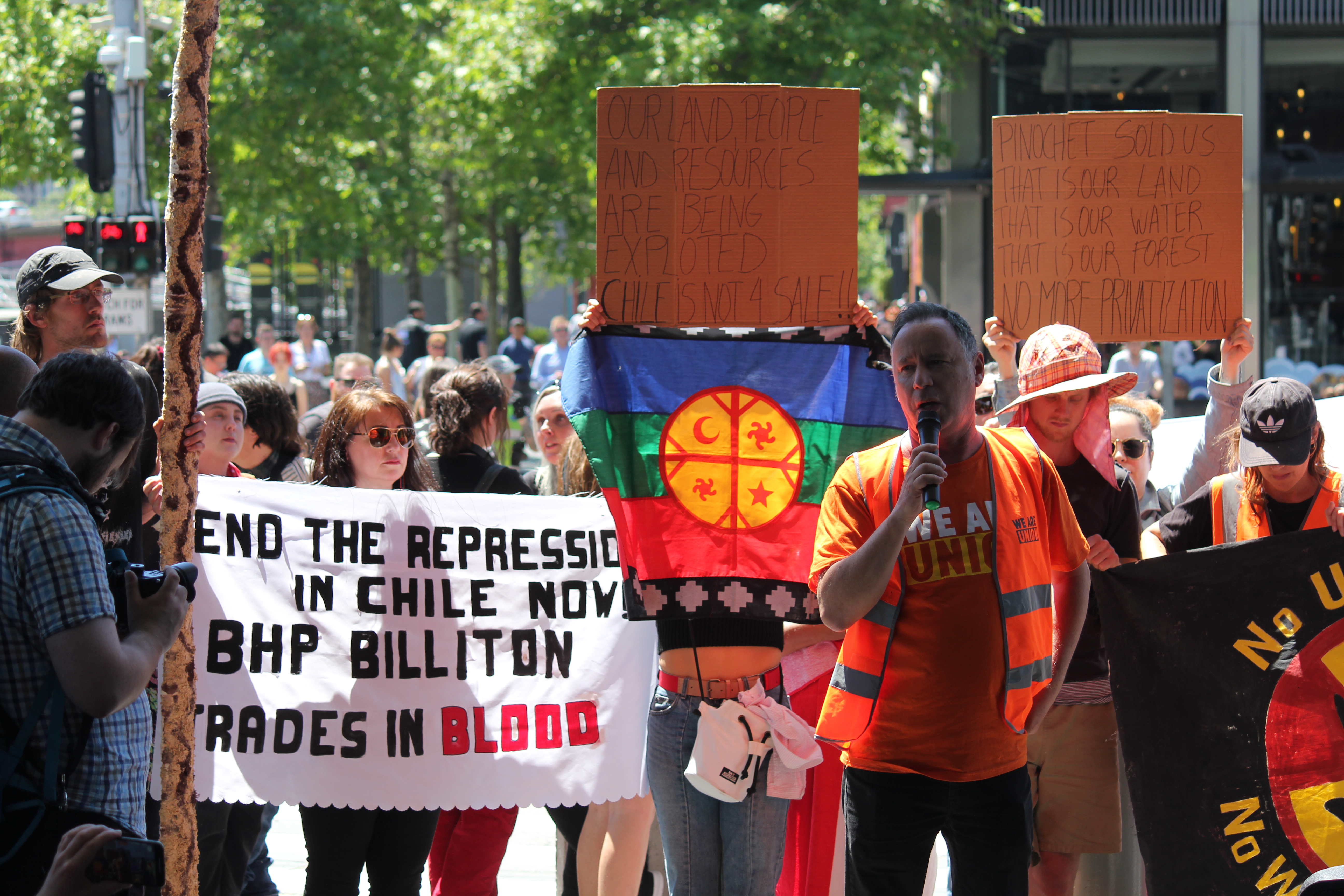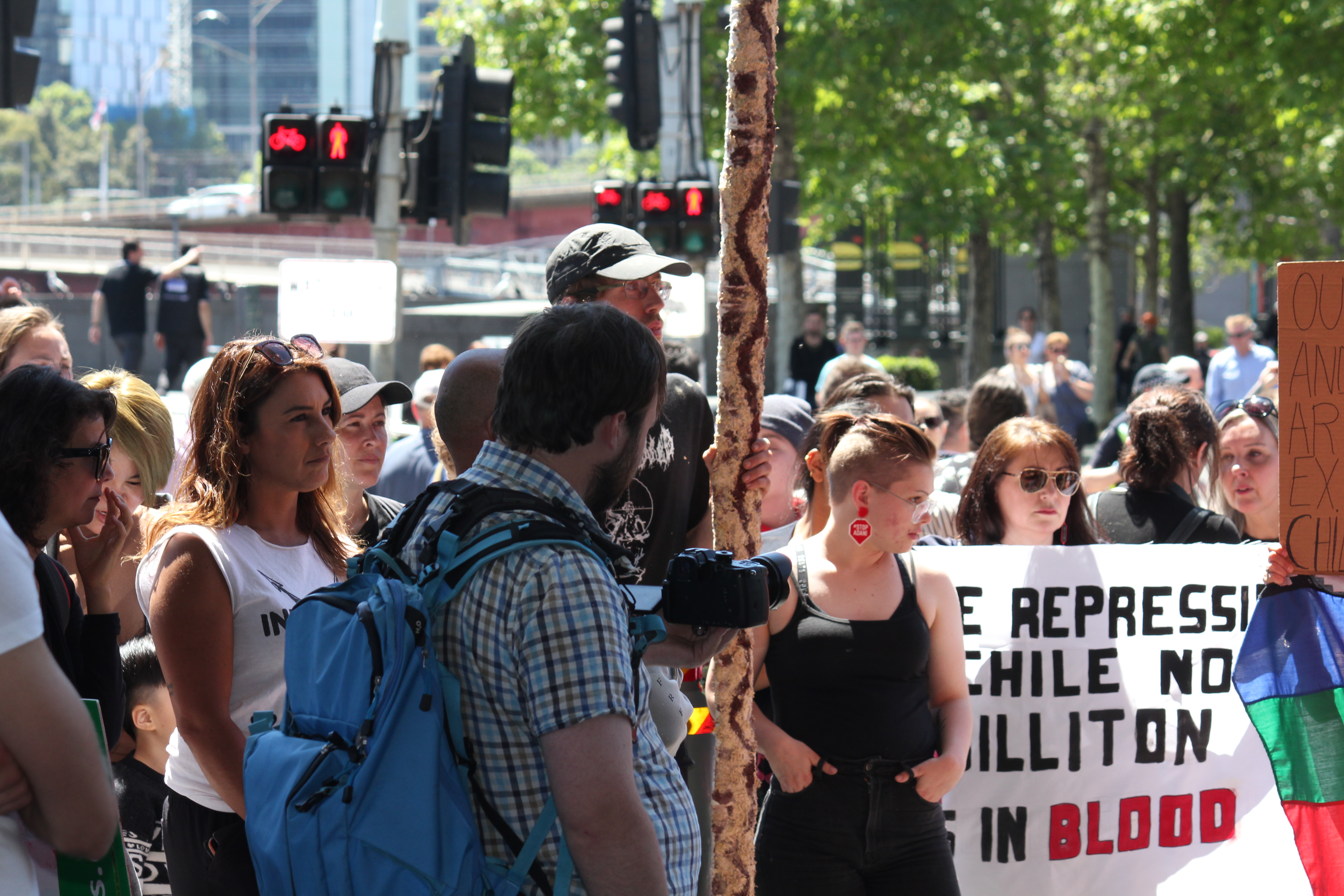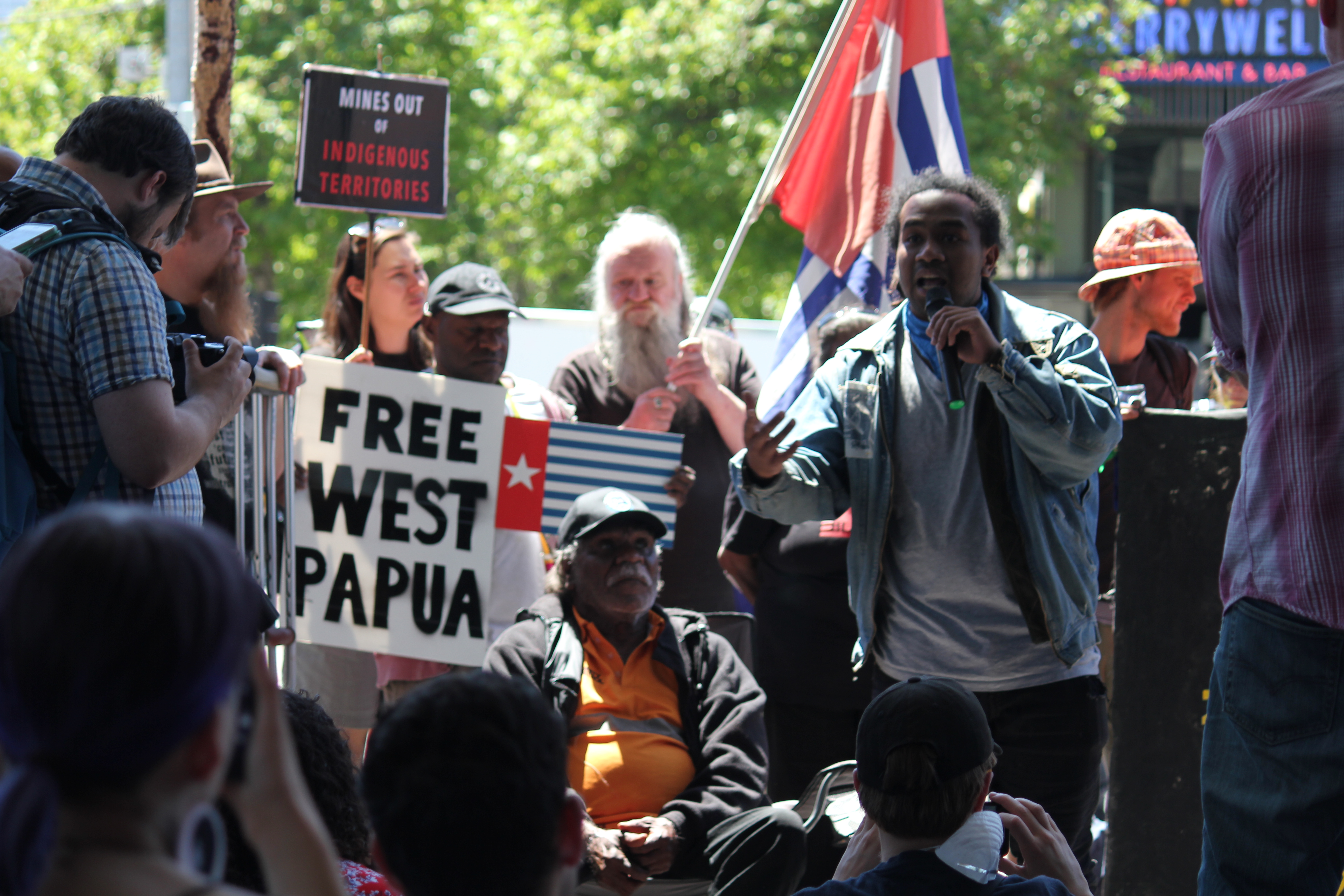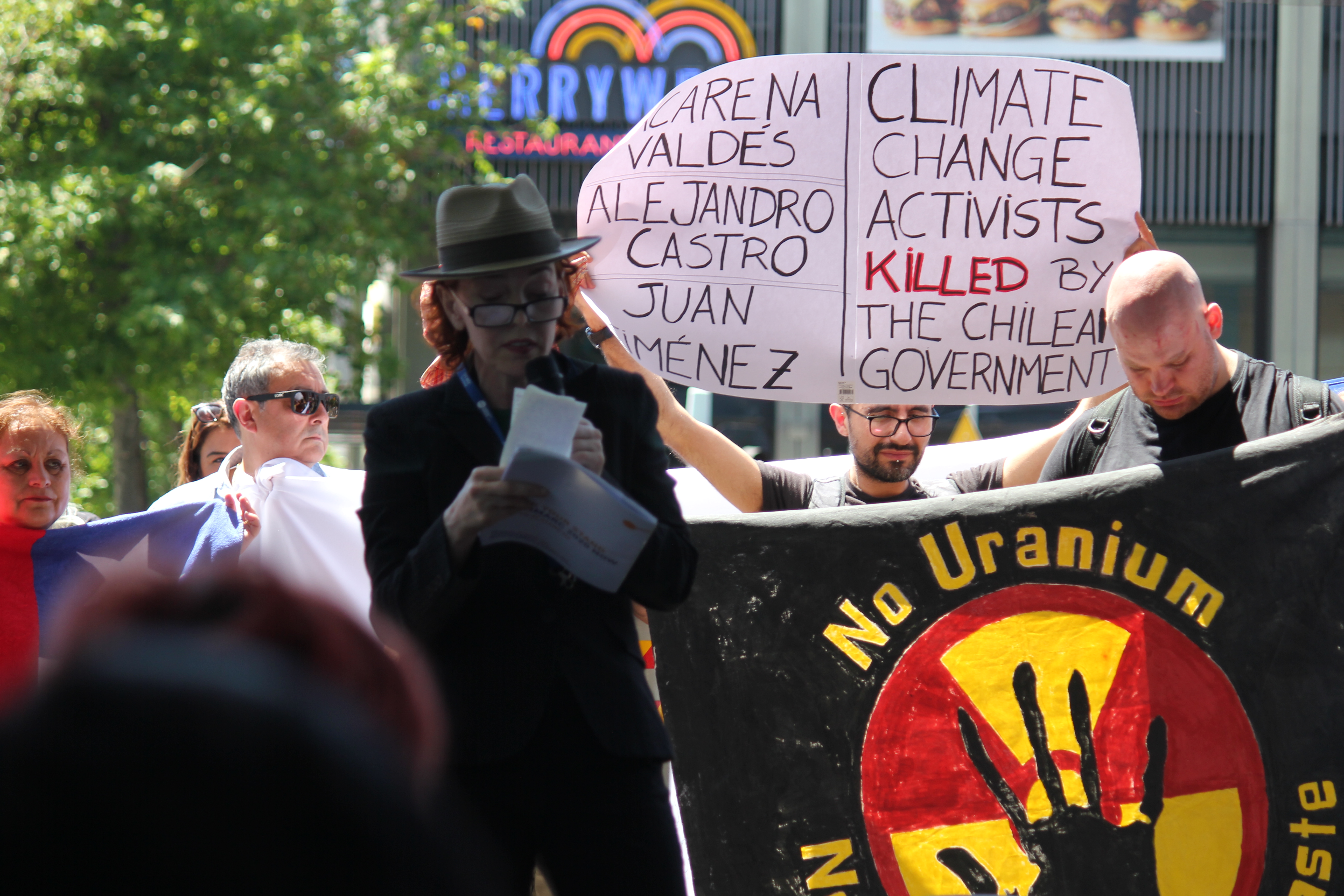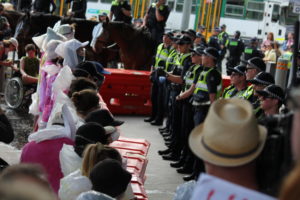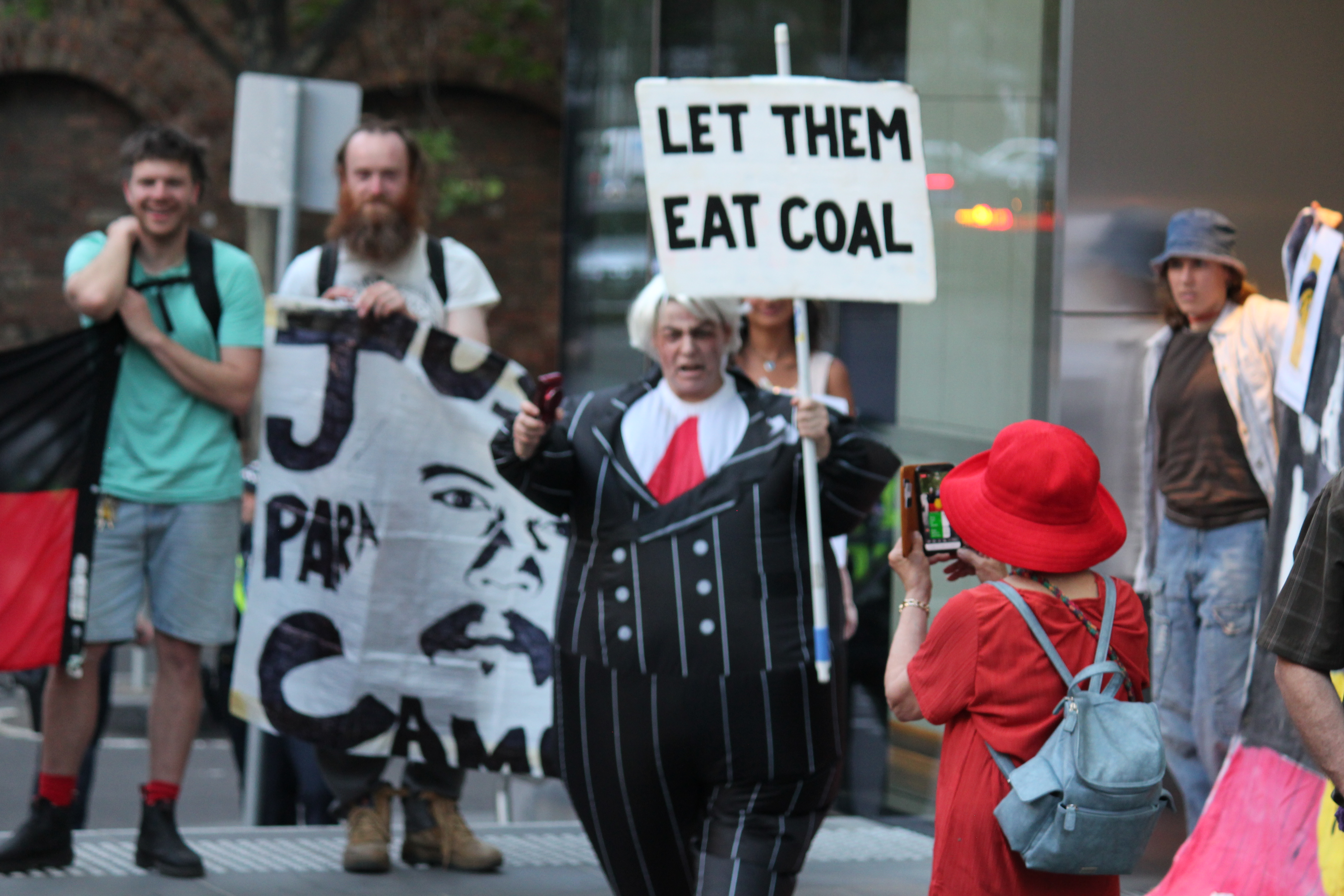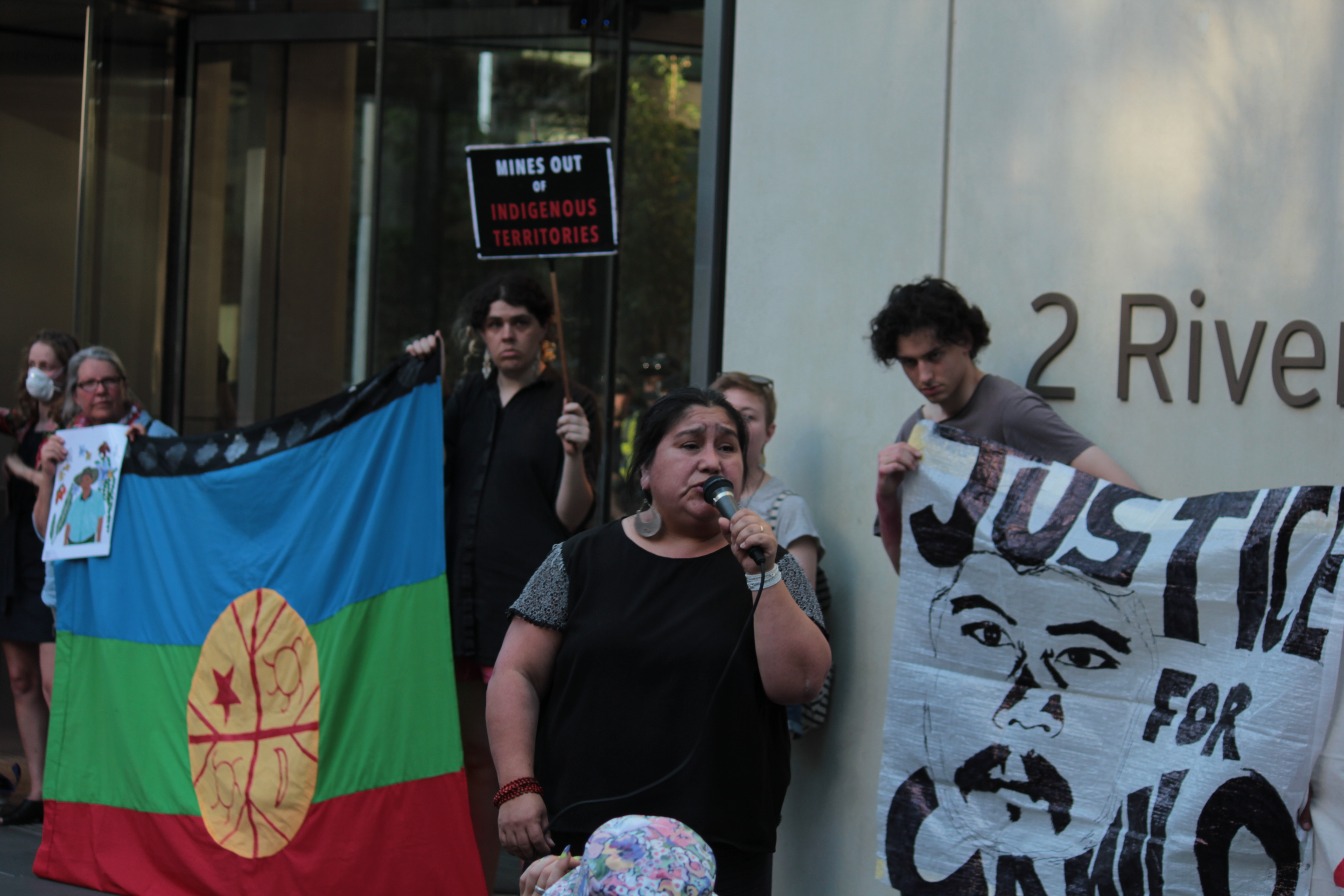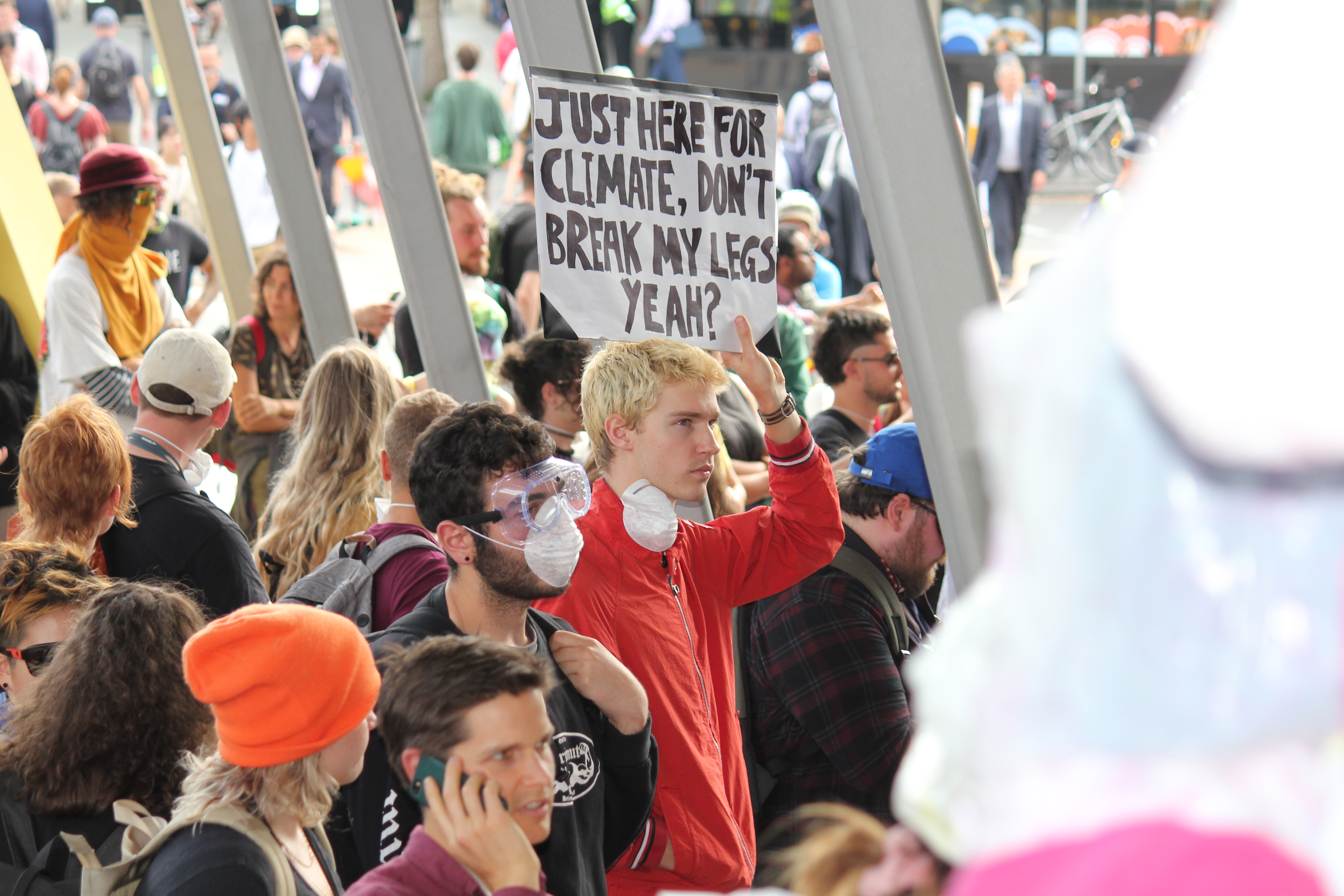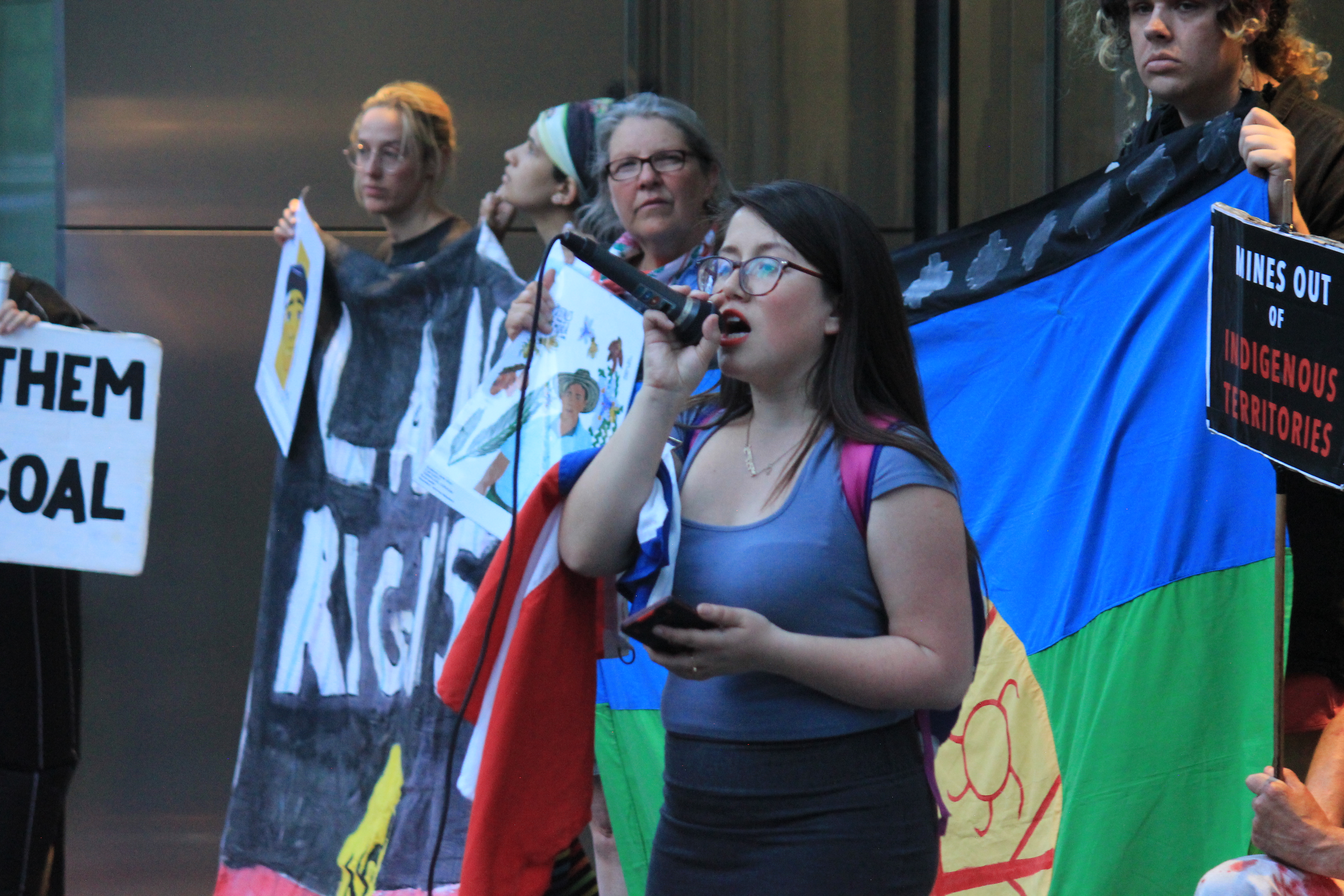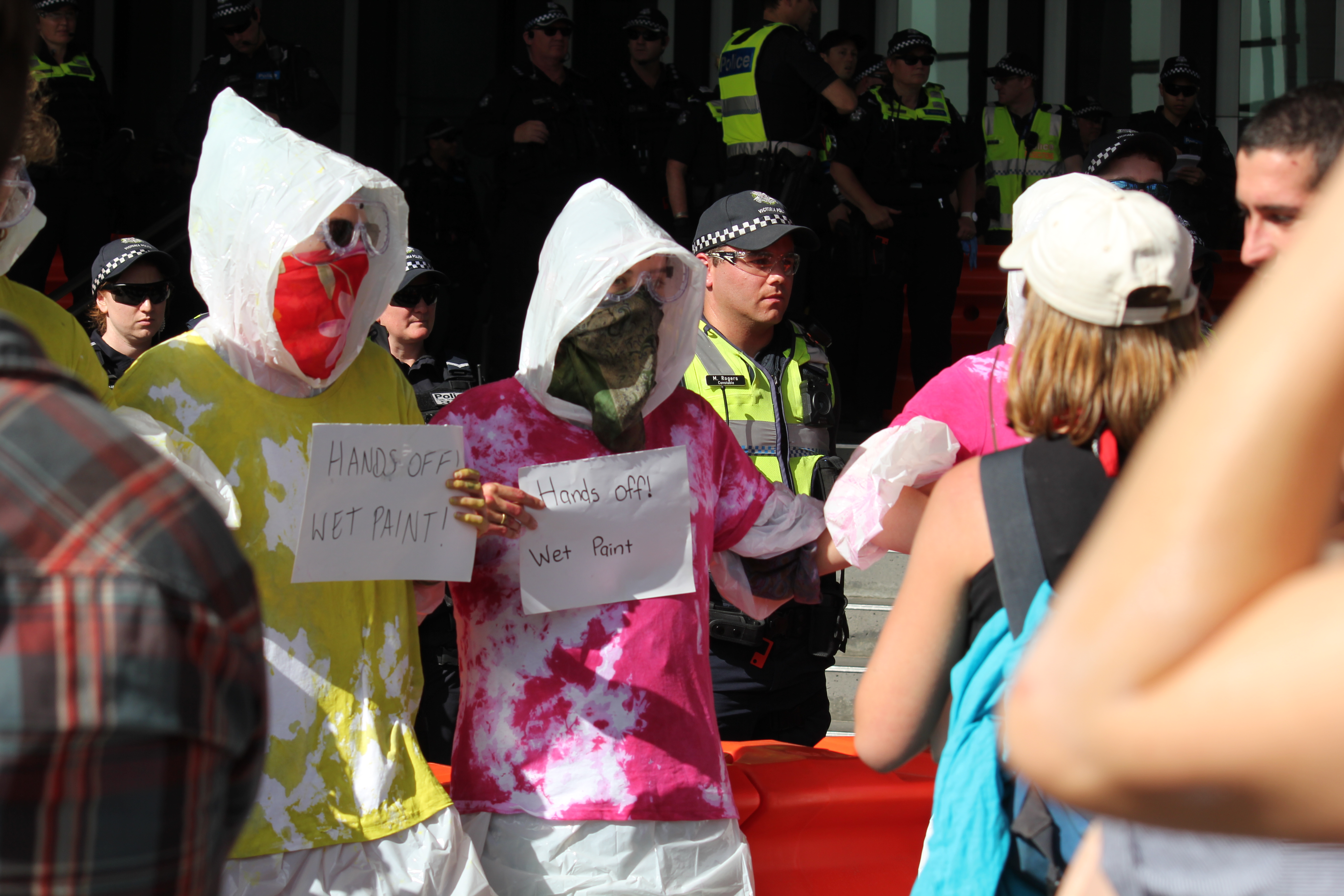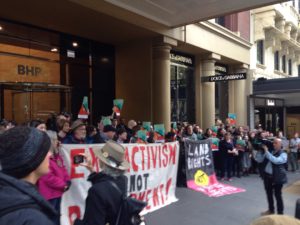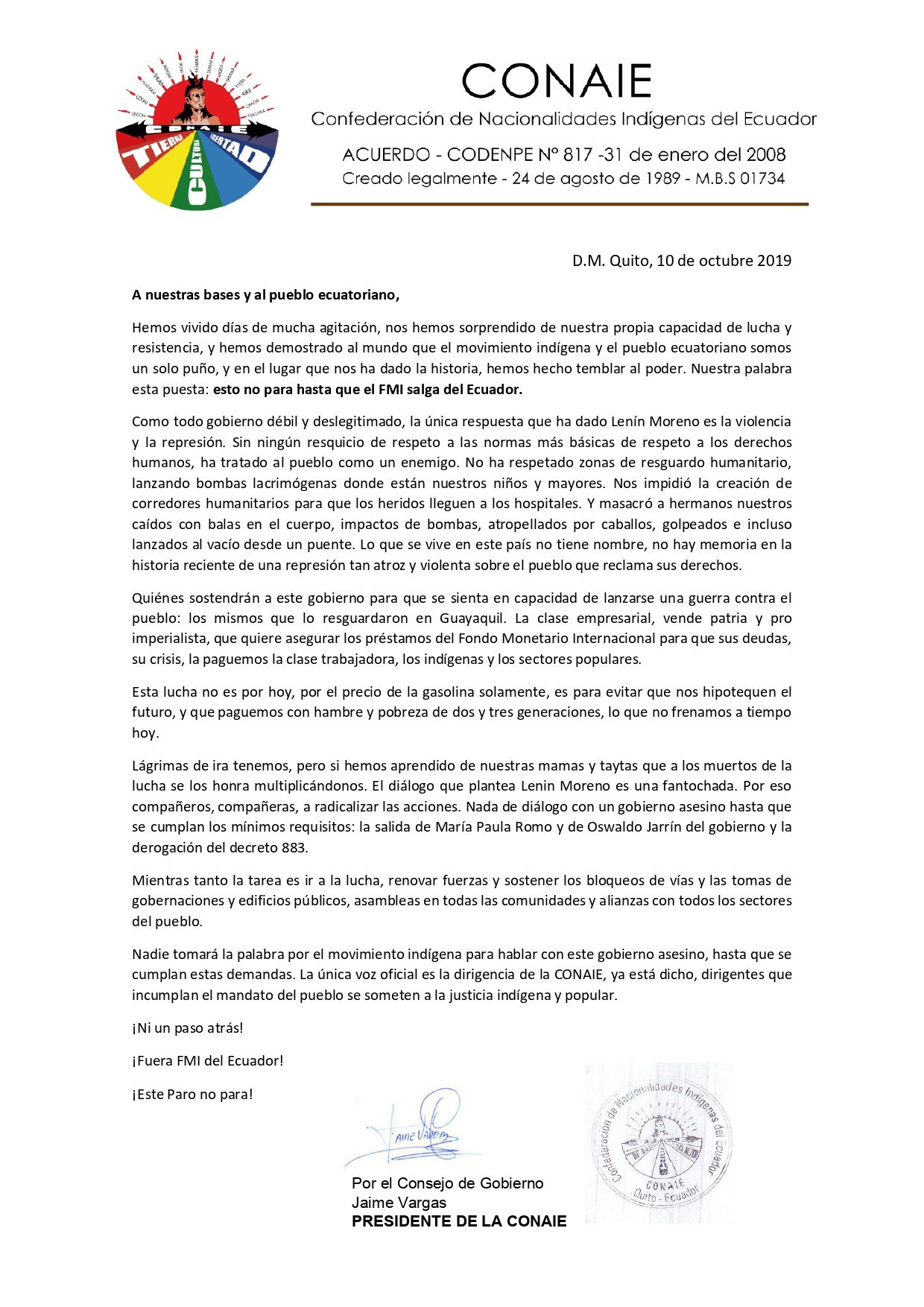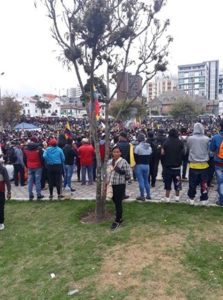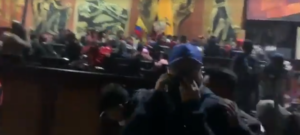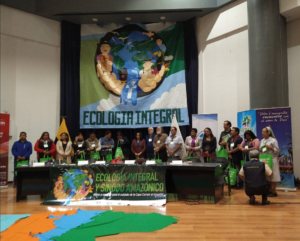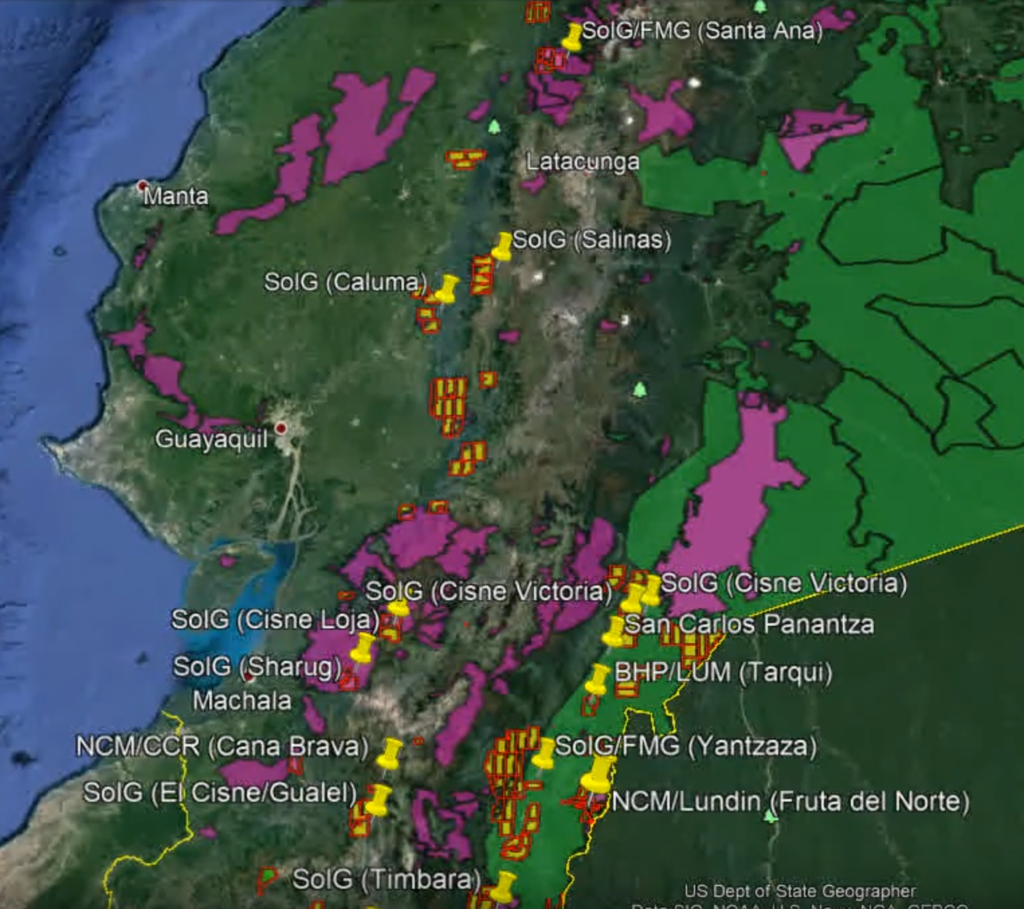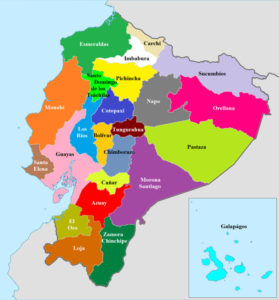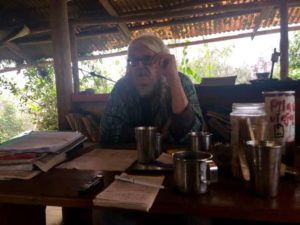Ongoing resistance to BHP’s attempts to explore for copper and gold in its Santa Teresa 2 concession came to a head on Tuesday 14th January when police attempted to dismantle a community blockade so BHP employees could pass. A subsequent community meeting on 18th January voted for the immediate call for revocation of all mining concessions in the Intag region.

The blockade on January 14 was the latest in a series of measures by community members to protest the company’s ongoing attempts to explore in the area.
“Community members have been dealing with increasingly aggressive tactics by BHP subsidiary Cerro Quebrado to divide the community and explore for minerals on their land for the last two years. Exploration permits for the Santa Teresa and Santa Teresa 2 concessions were granted to the company in contravention of the constitutional rights of communities to be consulted,” says Ms Rebekah Hayden, spokesperson for the Rainforest Action Group.
The Rainforest Action Group is a research, education and advocacy group that calls for corporate accountability, particularly when forests and Indigenous rights are threatened.
“Also violated were the rights of local and county governments to be consulted on activities that will have consequences for the areas under their jurisdiction. Nine communities are affected by these concessions, along with thousands of hectares of primary forest and pristine rivers,” says Ms Rebekah Hayden.
“Locals are gravely concerned at the potential impact of exploration and mining on agriculture, forests and waterways in the region, as well as the effects on local rural and urban communities,” Ms Hayden says.
“Despite OECD requirements that BHP respect the rights of affected communities, BHP continues to contravene these with increasingly militarised tactics now that police have been engaged to force the community to back down,” says Ms Rebekah Hayden.

As a result of the clash between police and community members, an assembly was held on January 18 with 320 people attending from 16 communities.
“Elected officials from the parish council governments of Apuela, Cuellaje, and Plaza Gutiérrez attended along with delegates from the Cotacachi mayor´s office and the president of Cotacachi’s Assembly for County Unity. The assembly voted unanimously to end to the presence of mining companies in Intag. They also called for government authorities to prioritise investment in agricultural, livestock and tourism activities, and take effective measures to stop mining activity in the Intag region,” says Ms Rebekah Hayden.
“The assembly warned authorities that they would take measures to eject mining companies from their territories if they continued in their attempts to divide communities and violate their Constitutional rights,” Ms Hayden says.
The communities also unanimously denounced the use of police and the military as bodyguards of mining companies, and demanded government and national entities to desist from this.
The resistance comes in the wake of an Ecuadorian Constitutional Court ruling on January 12 that communities “have the right to hold public referendums on whether or not to allow a mining project to go forward”. This ruling gives greater power to communities resisting mining in their area, and indicates that any legal case brought against BHP in the area is likely to succeed.
“The Rainforest Action Group is concerned that BHP shareholders do not know the extent to which it is contravening both OECD international guidelines for corporate practice and the Constitutional rights of communities in its attempts to explore for gold and copper in Ecuador,” Ms Hayden says.
“Despite being warned by the Rainforest Action Group at their AGM in November about the potential risks in Ecuador, BHP is continuing to conduct explorations there,’ Ms Hayden says.
CONTACT INFORMATION AND FULL MEDIA RELEASE HERE.
Complete list of resolutions agreed on by the assembly:
1) To request the Municipality of Cotacachi to apply the current ordinances that protect water, forests and communities; including the Ordinance that declared Cotacachi an Ecological Canton; the Ordinance of the Conservation and Sustainable Use Area, Manduriaco-Intag; the Ordinance of Rivers and Riversides; and to assume its competence for the use and regulation of the soil in the whole Canton to prohibit metallic mining.
2) Request the revocation of all mining concessions in Intag for not carrying out the Environmental Consultation of the communities, a right enshrined in Article 398 of the Constitution.
3) To request local, sectional and national governments to prioritise investments in agricultural and tourism activities.
4) To request the Municipality of Cotacachi to draft and approve an ordinance declaring the Cotacachi County free of metal mining.
5) Support the community controls to prevent unwanted individuals from entering communities.
6) Create a support and rapid reaction organisation in defence of communities affected by mining.
7) Demand the government and different national entities to desist from using the public forces as bodyguards of mining companies.
8) To demand that the members of the Parish, Cantonal and Provincial governments express their opinion on metal mining within their jurisdictions.
9) Create new tools to protect water resources, and to prioritise its consumption for human use, and to prohibit it for the use of mining activities.
10) Carry out a popular consultation at the Cou9nty level, so that the people can decide if metal mining should be definitively prohibited, in all its phases, within the Cotacachi Canton.
11) Undertake education and training programs on the impacts of mining.
12) To create a Intag-wide organization to, in a more direct way, face and look for alternatives to metallic mining.
13) Warn the mining companies of the unwavering will of the citizens of the Intag area to evict the mining companies if they continue to violate their rights.
